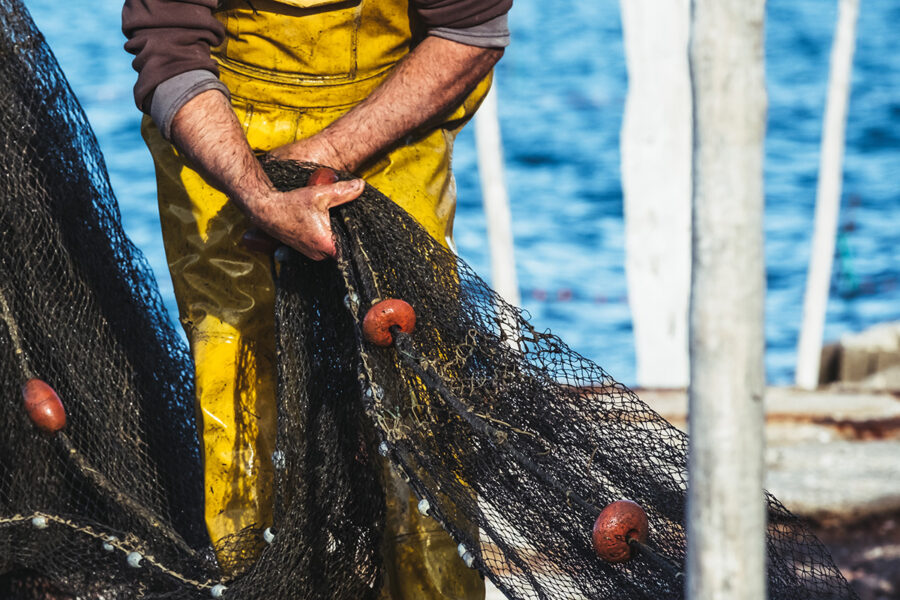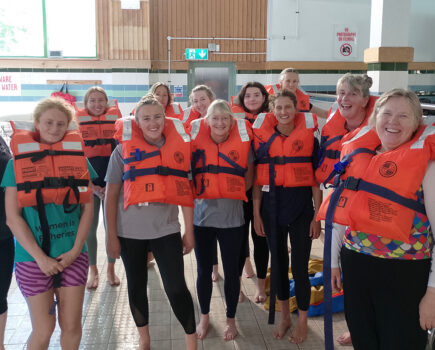Applications for support from under-10m rod and line pollack fishermen in England to the Fisheries and Seafood Scheme (FaSS) will be fast-tracked.
Announcing the reopening of the £6m scheme, fisheries minister Mark Spencer said applications from all fishermen are encouraged, but those most impacted by the zero TAC for pollack ‘will be expedited, bringing the application processing time down from eight weeks to four’.
The MMO said: “We will provide additional support to the most sustainable parts of the fleet by expediting applications from under-10m pole and handline fishing vessels.”
It added that ‘those groups affected by the recent closure of the pollack fishery are encouraged to seek advice from the MMO’ on how they can ‘boost growth through new opportunities and partnership working’.
In a statement to MPs, the minister also announced the launch of a new scientific study into the pollack stock and its long-term sustainability.
“ICES advice suggests that the issues facing pollack are highly likely to last multiple years,” said the minister.
“We are working nationally and with the EU in the Specialised Committee on Fisheries (SCF) to help improve the scientific assessment of pollack and the long-term sustainability of the stock.
“For example, the Centre for Environment, Fisheries and Aquaculture Science is leading a scientific study, based on collaborative research between fishers and scientists, following an approach used in the Fisheries Industry Science Partnership scheme.
“Fishers will be engaged in the project to collect genetic samples from around 3,000 pollack. These fishers will receive payment for their initial training, payment for catching the fish required for the study, and would be able to sell the pollack they caught as part of the study.
“The study aims to understand more about the abundance and stock structure of pollack. Not only will this help us understand the stock better, it will also help us to improve the scientific assessment of pollack, as we are committed to doing with the EU through the SCF.”
Applications to take part in the study, along with detailed eligibility criteria, will open ‘as soon as possible’.
The minister said work on pollack also involves improving understanding of the recreational fishery ‘with a view to the introduction of limits where appropriate, and where these are likely to be effective in reducing pressure on the stock’.
He told MPs: “We will continue to work together with industry on this and any potential future management options towards the recovery of the stock.
“We are also looking at the future management of this stock through our fisheries management plans, specifically the Celtic Sea and Western Channel demersal plans, to be published towards the end of 2025.”
He said that throughout the process of setting the 2024 TACs, Defra had engaged closely with industry representatives and ‘understood that, even with a bycatch TAC, this would pose difficulties for fishers who have predominantly targeted pollack’.
The government wants to see the long-term recovery of the pollack fishery, said the minister, arguing that the measures announced ‘will help support the sector through this time, securing a vibrant and prosperous seafood sector that supports thriving coastal communities’.
Industry reaction: ‘Late in the day’ – and limited
There was a mixed response to the announcement from industry groups, with a guarded welcome for the support, but with the caveats that it should have come earlier and should not be restricted to only under-10m rod and line fishermen.
NUTFA director Jerry Percy said: “Whilst it would of course be churlish not to thank the minister for finally throwing something of a lifeline to some of those facing loss of livelihood through the pollack quota decision – but only some – this is tragically in a similar vein to the debacle over the MCA medical issue, putting fishermen through untold worry, cost and distress before, late in the day, having an apparent change of heart.
“Surely Defra would or should have considered the likely impact of the pollack closure, and worked to put support in place before many guys have either put their boats on the market or attempted, with limited success, to pursue other fisheries.
“It is a crying shame, and it was so unnecessary that many fishing families reliant on this fishery would have had to have had potentially life-changing discussions around the table regarding their future before the recent announcement – and this only appears to cover a small element of those affected.
“For all the talk of collaboration and co-management, the chasm between the industry and officials seems to be growing rather than shrinking. We all need to work that much harder to turn this around.”
The Plymouth Fishing and Seafood Association (PFSA) welcomed the government’s commitment to improve the pollack stock assessment, and the fact that the industry is being involved.
But chief executive Edward Baker said it was ‘disappointing’ that the FaSS scheme is prioritising handlines. He told Fishing News: “The small-scale fixed-net fishery was just as hard hit by the pollack ban, and businesses are now folding.
“In their online announcement, the government has declared hook and line to be the most sustainable fleet, but this is debatable, and it would be good to see the basis for its assessment on this.
“Defra and the MMO have agreed to meet with some of the South West pollack fishermen early in March, and I hope at this meeting we can discuss the involvement of other gear types in the stock assessment work.”
This story was taken from the latest issue of Fishing News. For more up-to-date and in-depth reports on the UK and Irish commercial fishing sector, subscribe to Fishing News here or buy the latest single issue for just £3.50 here.
Sign up to Fishing News’ FREE e-newsletter here.








